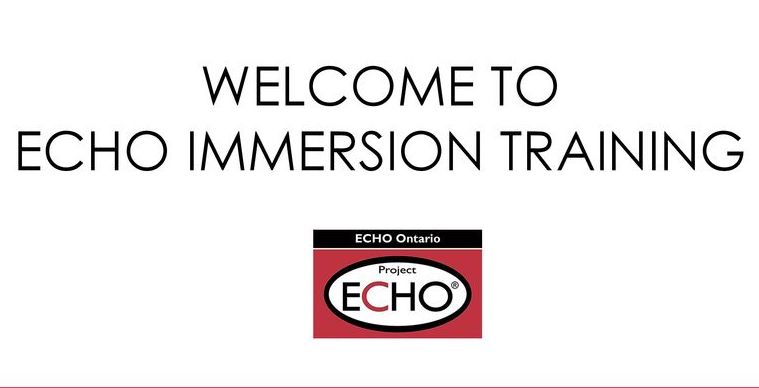Project ECHO based at University of New Mexico is ‘a collaborative model of medical education and care management that empowers clinicians to provide better care t more people, right where they live.
The use of the ECHO platform for the sharing of knowledge is one of the innovations brought on board by the One Health Workforce Next generation project global consortium.
June 23rd – 26th, 2020, AFROHUN staff and select faculty underwent an ECHO Immersion training which is a new experience for many. We sampled our staff on what the training was like for them and what it promises in terms of work experience. Participants generally had expectations to learn how they can do their work more innovatively, while a few had no idea what to expect, but went in with enthusiasm.
“I initially looked at it as an opportunity to learn how to navigate through the virtual online platforms”, Dr. Sam Wanjohi – AFROHUN Kenya Country Manager.
“I expected to get an in-depth understanding of what ECHO is and its applicability to the One Health-related activities”, Ms. Angella Musewa – AFROHUN Uganda Country Manager.
“Frankly speaking, I did not have any idea about the scope of the training and what new ideas it would bring. Having said that, I was curious and open-minded about any new knowledge”, Dr. Juvenal Kagarama – AFROHUN Rwanda Country Manager.
“My expectations were to see how ECHO works and practice the Mock. I wanted to learn how I can link One Health issues to Project ECHO since I have been leading some activities related to students’ clubs and community interventions”, Gladys Mahiti – Faculty, Muhimbili University of Health and Allied Sciences, Tanzania.
With or without expectations, the Immersion Training participants experienced some really intriguing moments that they share with us here.
“At the beginning when I received an email from the AFROHUN Secretariat that I was seconded as a volunteer, I was worried. I asked myself what kind of contribution I would make as a volunteer who has never undergone such a training. But after accepting to take up the role as a Subject Matter Expert, I think I learnt a lot”, Ms. Angella Musewa – AFROHUN Uganda Country Manager.
“The case presentations were intriguing to me. As the training was unfolding, I couldn’t help but wonder what One Health case presentations we could have. The opportunities and possibilities seemed (and still are) exciting. Additionally, I found the emphasis on “video on” quite interesting, noting that most online sessions call for people to put their videos off. The emphasis on relationship building was well appreciated in this regard”, Dr. Samuel Wanjohi – AFROHUN Kenya Country Manager.
“What touched me most was the notion/concept of “moving services to where they are needed most instead of moving patients to service providers. Besides, the idea provides for exchanges of ideas and knowledge among peers, for better service provision- a real example of community of practice working”, Dr. Juvenal Kagarama – AFROHUN Rwanda Country Manager.
It appears this is one of those trainings where even the most skeptical individual comes out feeling truly immersed in a good thing. It triggered a wave of thinking on how it can be adapted to One Health work which is not clinical.
“I think the training did deliver on expectations even though I did not have any idea about ECHO at the beginning. I now know what it takes to create an ECHO hub and how to make it achieve its objectives”, Dr. Juvenal Kagarama, AFROHUN–Rwanda Country Manager.
“I observed that an ECHO program is not an ordinary webinar but rather a well-designed and articulated program that serves to not only promote capacity building, but build relationships while doing so. Further, it is a program intentionally built to bridge the knowledge gap, moving knowledge to where it is needed. The opportunities and possibilities are exciting”, Dr. Samuel Wanjohi, AFROHUN Kenya Country Manager.

